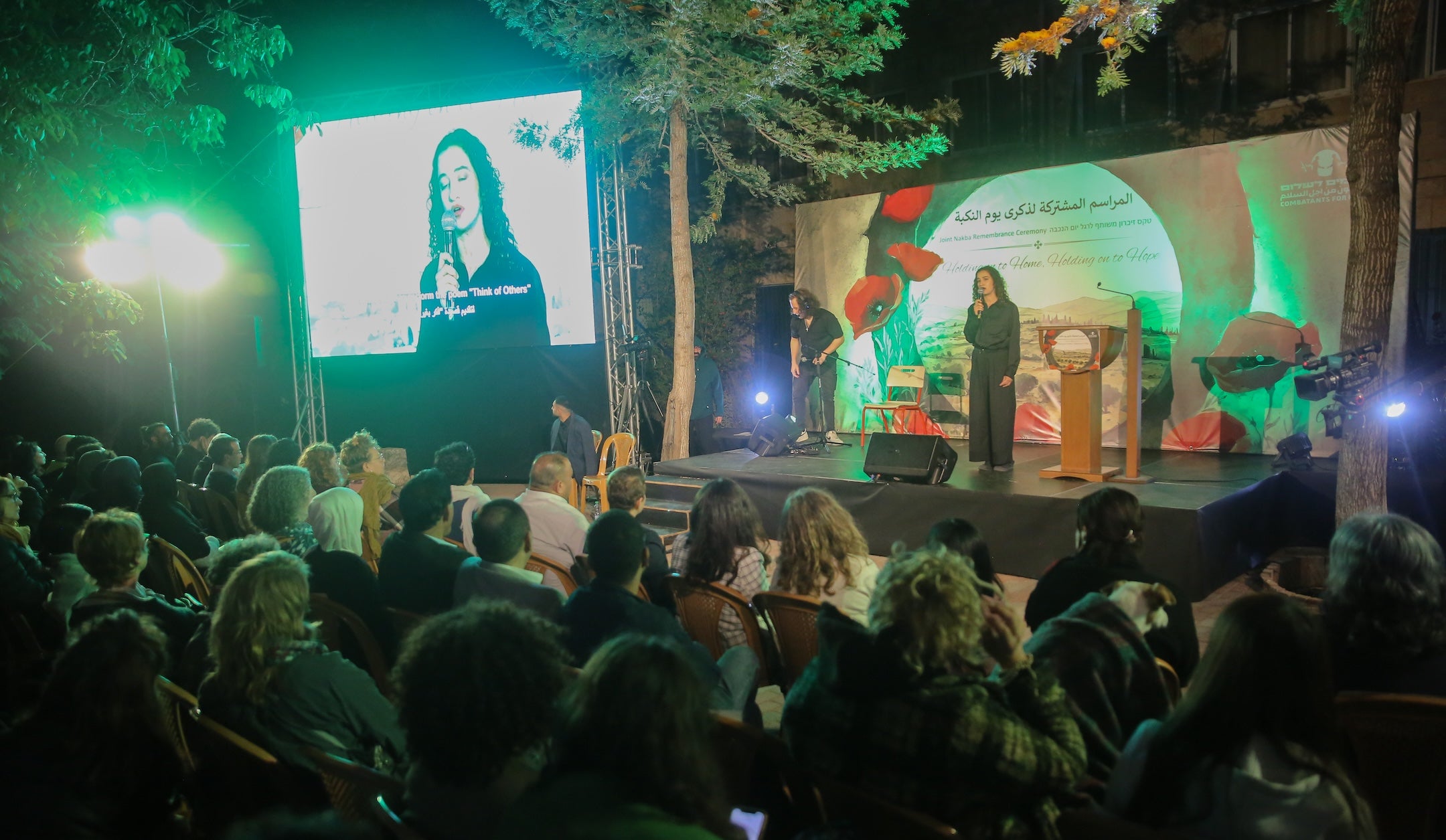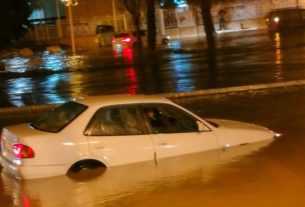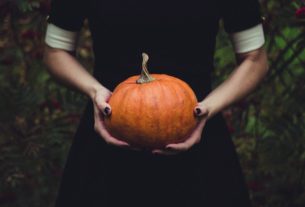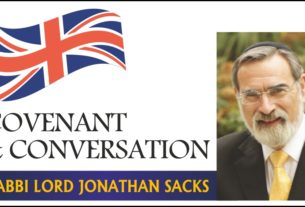BEIT JALA, West Bank — Sitting in a secluded West Bank forest, listening to the account of an elderly Palestinian displaced from his home during Israel’s War of Independence, Kate Kaufman couldn’t help but think of her great-uncle.
Harold Livingstone was among a group of Jewish American pilots who helped create the Israeli Air Force during that 1948 war. Nearly 70 years later, his grandniece Kaufman, who grew up in a Zionist family in Florida, immigrated to Israel. But as she met Palestinians in a research program three years ago, she says her perspective began to change.
“As a Jew who chose to become Israeli, I’ve been feeling guilt ever since I started to learn things that didn’t match up between the narrative I grew up with and the narratives of those who I speak to,” she said.
She’s lately taken part in pro-Palestinian activism and, on Thursday evening, she participated in a recognition of the Palestinian narrative — by being one of the few Jewish Israelis to formally mark the Nakba, the term meaning “catastrophe” that Palestinians use to describe their mass displacement upon Israel’s establishment.
The ceremony she attended on Thursday, Nakba Day, brought together about 100 Israelis and 100 Palestinians south of Jerusalem to hear stories of those displaced in 1948 and listen to mournful music.
This year, speakers said, parallels to the present are clear. Israel’s ongoing war against Hamas in Gaza has destroyed large swaths of the territory and displaced almost all of its population. Palestinians and some right-wing Israeli politicians alike have used the word “Nakba” to describe the war.
Lee Mordechai speaks at a joint Israeli-Palestinian Nakba Day commemoration in the West Bank, May 15, 2025. (Steven Davidson)
“The Nakba is not just a past event,” Lee Mordechai, a history professor at Hebrew University whose ongoing project, “Witnessing the Gaza War,” has compiled thousands of documents detailing the impact of the war on Palestinians. “It’s an open wound still bleeding today before our eyes between the river and the sea: in Gaza, in the West Bank and Israel itself.”
Any recognition of the Nakba remains deeply controversial in Israel, where commemoration of the Nakba is seen by some to frame Israel’s founding as a catastrophe. Many Israelis say Palestinians and invading Arab armies bear responsibility for the displacement, as well as for many Palestinians’ continued refugee status 76 years later.
“The Nakba of 1948 has been ignored and denied in Israel for many decades, and the very utterance of the word arouses strong opposition,” said Avigail Shorr, 25, the Israeli co-host of the event, during the ceremony.
“Over the last few years, many of the same people that vehemently denied the forced displacement of 1948 now openly state they are doing it again,” she said. “And still many Israelis deny that the Nakba ever took place out of fear that acknowledging the Palestinian loss and trauma would undermine Jewish presence in the land.”
In the 1980s and 1990s, the so-called Israeli New Historians such as Benny Morris, author of “1948,” documented the extent of Palestinian displacement in the war, including instances when Israel’s nascent government and military planned and executed expulsions.
More recently, there’s been backlash to Israeli recognition of the Nakba. In 2011, the right-wing Israeli activist group Im Tirtzu launched a campaign titled “Nakba Nonsense,” whose materials seek to debunk the “myth” of the Nakba.
“According to this fictive version of history, the aggressor is represented as the victim, and the side that defended against massacre is accused of having committed war crimes,” the group’s pamphlet said. “It’s an enormous lie which is meant to undermine the international recognition of Israel’s right to exist within secure and defensible borders. It is meant to criminalize Israel and to frame Israel of having perpetrated a crime which it did not commit.”
That same year, an Israeli law withdrew public funding from any organization that marked the Nakba. This past week, Israeli Education Minister Yoav Kisch threatened to revoke funding for Hebrew University and Tel Aviv University for allowing student events commemorating the Nakba Day.
“Something about it feels like another drop in the ocean of fascism,” said Shorr, a student at Tel Aviv University, in an interview. “When societies become extreme, everything feels out of place, but in place at the same time. Nothing is surprising you anymore, because everything is so extreme.”
Since Hamas’ Oct. 7, 2023, attack on Israel, some on the Israeli right have adopted the language of Nakba — calling for another one. On the day of the attack, lawmaker Ariel Kallner tweeted, “Nakba for the enemy now! Today is our Pearl Harbor. We will learn the lessons later. Right now, one goal: Nakba!” About a month later, Agriculture Minister Avi Dichter said, “We are now rolling out the Gaza Nakba.”
The event was organized by Combatants for Peace, an Israeli-Palestinian group committed to renouncing violence. The group is also one of the main organizers of another event that draws perennial controversy in Israel — the joint Israeli-Palestinian ceremony on Israel’s Memorial Day, which drew violent right-wing attacks earlier this month. Because of that, viewing parties for the Nakba Day ceremony were made invite-only this year.
Likewise, by holding the Nakba Day ceremony alongside Israelis, Palestinian organizers have dealt with accusations within their own society that they’re normalizing relations with their oppressors. Similar accusations led last year to a Palestinian call to boycott Standing Together, one of Israel’s most active left-wing groups.


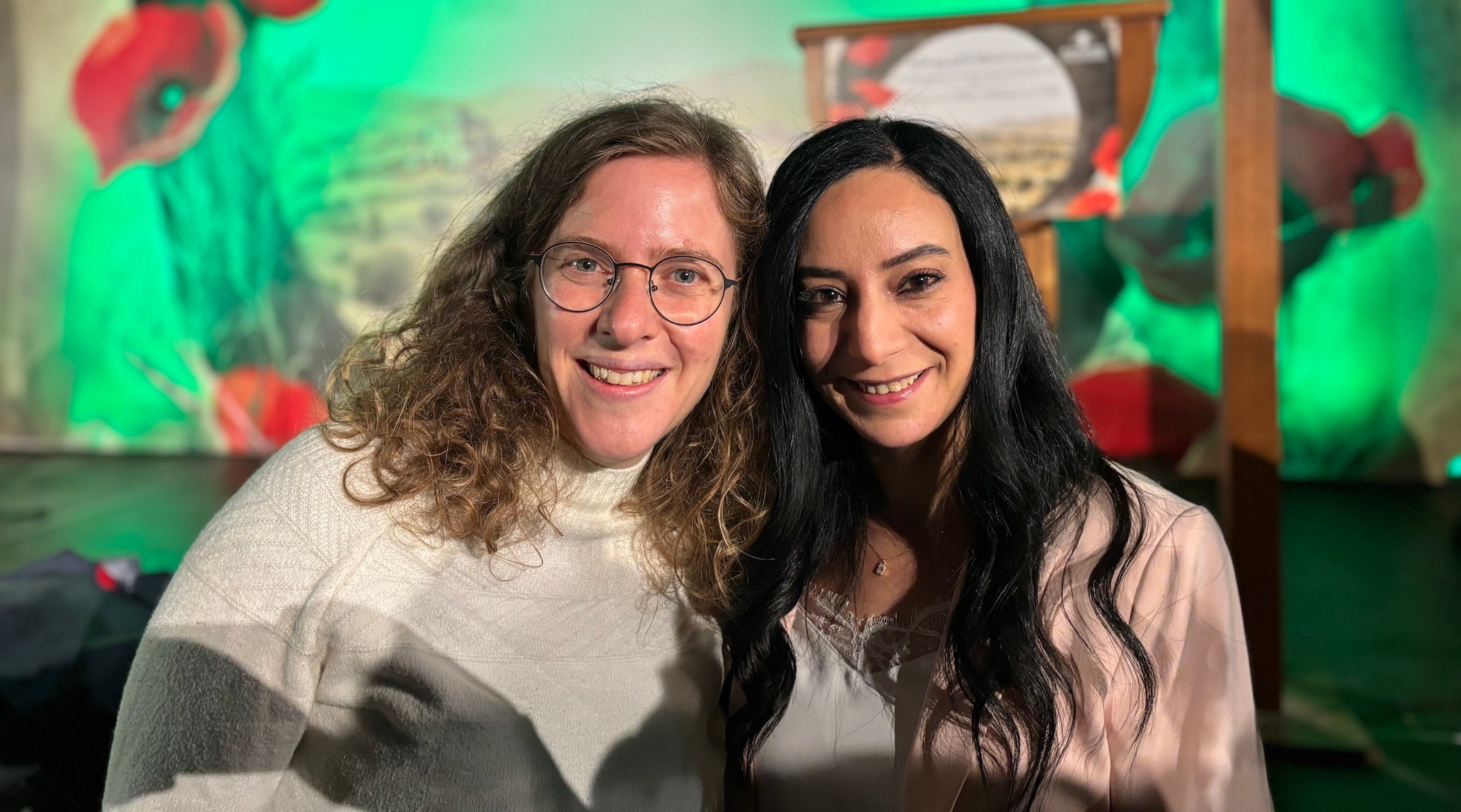
Eszter Koranyi and Rana Salman, Israeli and Palestinian co-executive directors of Combatants for Peace, at a Nakba Day commemoration in the West Bank, May 15, 2025. (Steven Davidson)
“We had some challenges for many years by anti-normalization [forces], but for the last few years, we didn’t have any direct attacks on the movement,” said Rana Salman, co-executive director of Combatants for Peace. She said people came to understand that “we are here together, and to fight against all oppressive systems that do not affect only the Palestinians, but also Israelis.”
During the ceremony, a video was shown of the elderly Abd-Alaziz Qatasha, who now lives in a refugee camp near Hebron, describing his violent displacement as a child from his family’s village of Beit Jibrin during the 1948 war. He recounted fleeing under Israeli gunfire and seeing “the ancient Roman olive trees with thick, massive trunks ripped straight from the earth and hurled into the air by the falling bombs of the Israeli planes.”
Another activist read the testimony of an Israeli soldier who wrote of participating in the forced displacement of Palestinians in 1948. The ceremony included an emotional video of a 14 year-old girl from Gaza whose home was destroyed completely during the war and has since been displaced 11 times.
While a solid majority of Israelis want the Gaza war to end with a hostage deal, some surveys of Israelis show majority support for transferring Palestinians from Gaza. The Israeli activists who participated in the ceremony say they are marginalized in their society, but they feel talking about the Nakba can help lead to reconciliation.
“We insist that it is the opposite: an open conversation about the Nakba of ‘48 and its wounds is a necessary step towards healing them,” Shorr said.
Palestinian co-host Mahmoud Khalil (no relation to the Columbia University activist of the same name) commended Israeli allies.
“To the Israelis who say ‘not in my name’, we see the pain in your hearts, the knots of fear and despair,” said Khalil. “We know how deeply it hurts to witness atrocities committed in your name and the violence you face in the streets simply for speaking out. We will continue to work together to dismantle the forces that seek to divide us.”
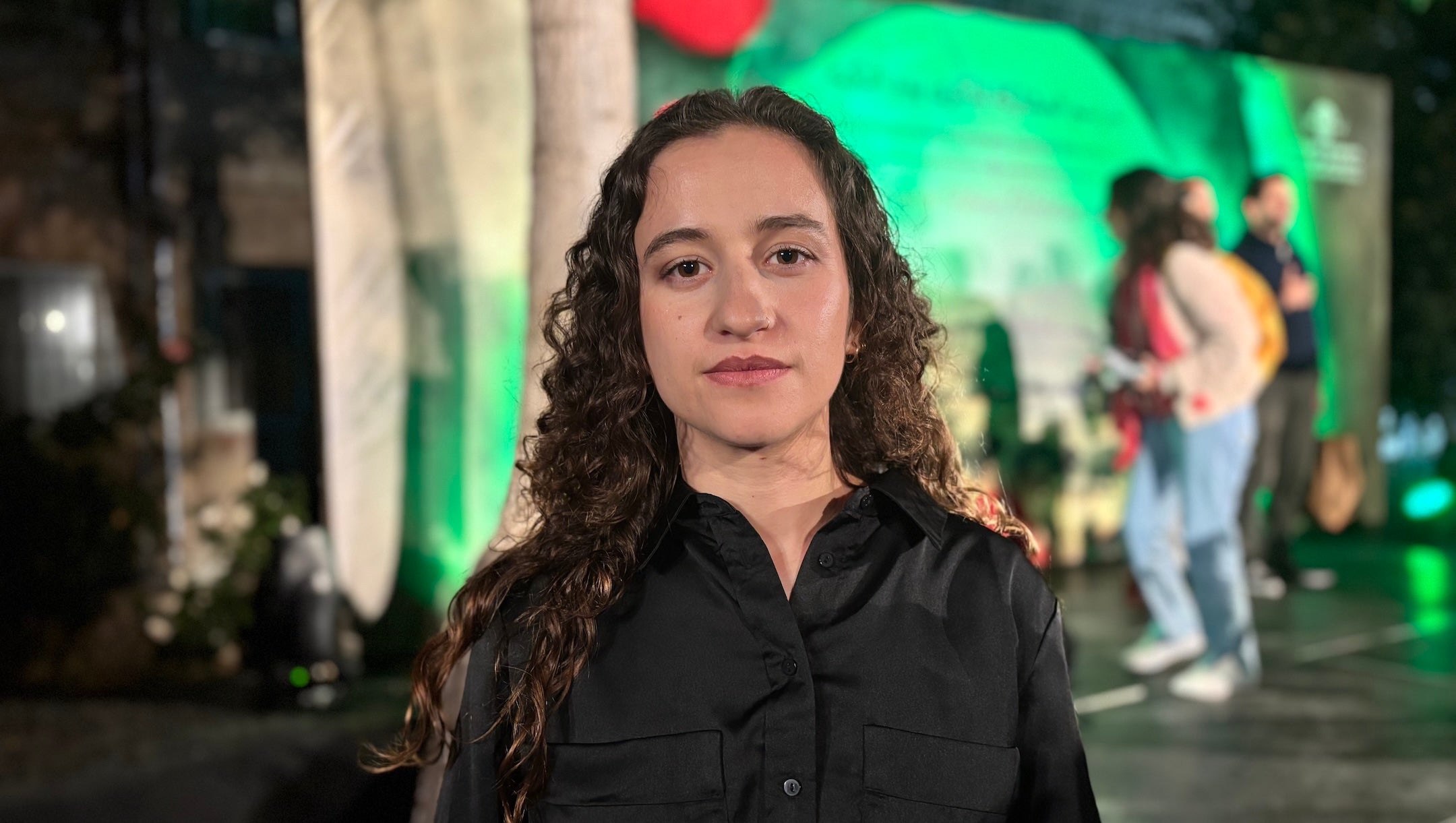
Avigail Shorr was the Israeli co-host of an Israeli-Palestinian Nakba Day event in the West Bank, May 15, 2025. (Steven Davidson)
Shorr said, “And to the Palestinians who hold firm in their opposition to the targeting of innocents in the face of the terrible violence, and despite the atrocities, we salute your humanity.”
At the ceremony’s conclusion, the audience gave a standing ovation, as Israeli and Palestinian activists gave each other tearful hugs. Only seconds later, sirens blared, warning of incoming rockets launched by the Houthis in Yemen.
The crowd hushed momentarily. Some began to look up at the sky, waiting for the rockets to come. After three minutes of sirens, several loud booms could be heard in the distance as Israel’s Iron Dome defense system downed the barrage of missiles.
The crowd remained in place.
“In the depths of suffering, a quiet truth remains,” Shorr said at the event. “The war will end, and we will rebuild. We will find a path to love, to healing, to caring for what remains.”
Keep Jewish Stories in Focus.
(JEWISH REVIEW) has documented Jewish history in real-time for over a century. Keep our journalism strong by joining us in supporting independent, award-winning reporting.

